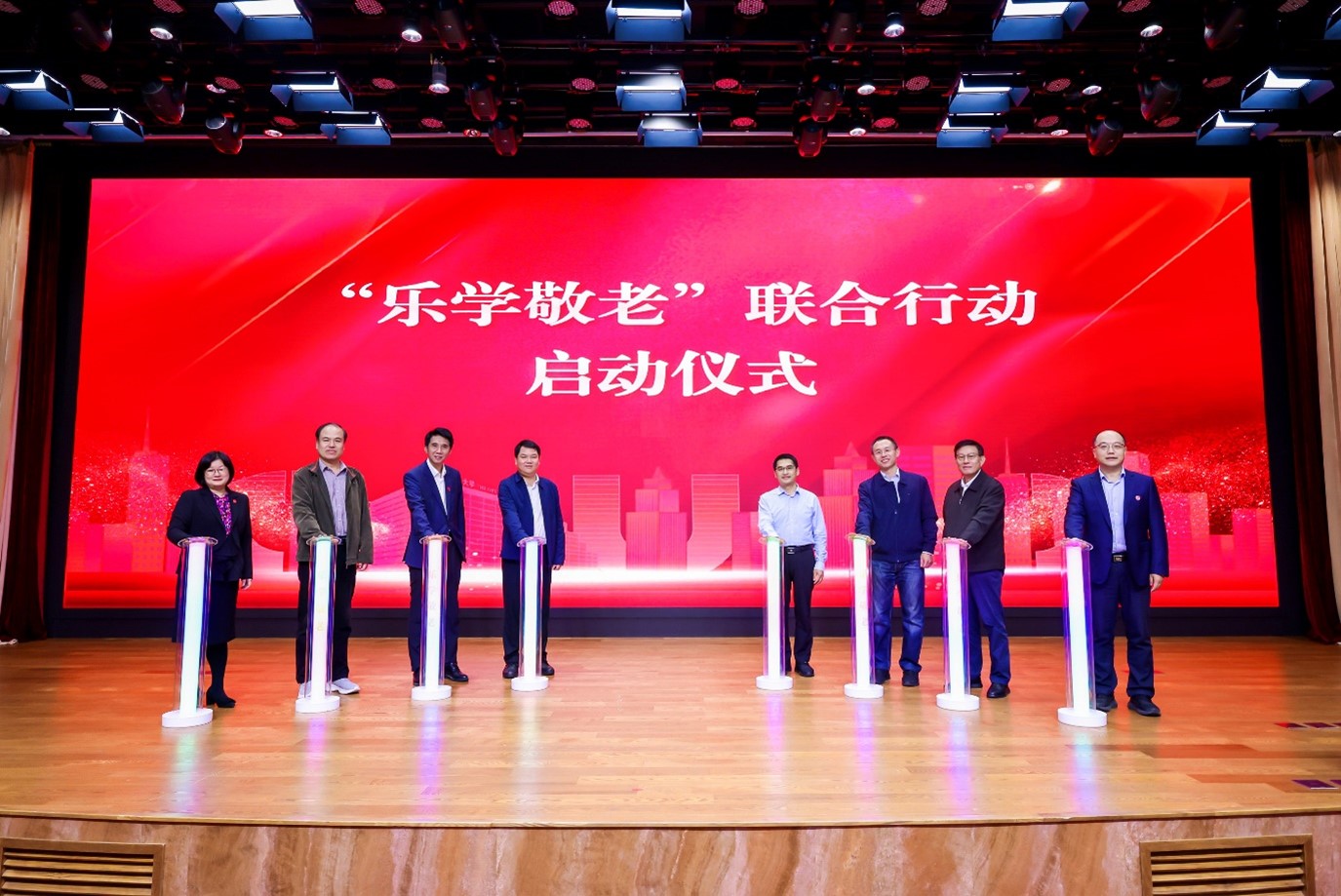 To fully implement the guiding principles of the Third Plenary Session of the 20th Central Committee of the Communist Party of China (CPC) and the National Conference on Education, and to conscientiously follow the requirements outlined in the "Notice on Holding Activities for the 2024 National ‘Month to Respect the Elderly’” issued by China National Working Committee on Aging, the Ministry of Education (MOE) held the launch ceremony of the joint initiative of “Happy Learning and Respecting the Elderly” on 9 October, 2024, at the Open University of China (OUC, aka the Seniors University of China, SUC).
To fully implement the guiding principles of the Third Plenary Session of the 20th Central Committee of the Communist Party of China (CPC) and the National Conference on Education, and to conscientiously follow the requirements outlined in the "Notice on Holding Activities for the 2024 National ‘Month to Respect the Elderly’” issued by China National Working Committee on Aging, the Ministry of Education (MOE) held the launch ceremony of the joint initiative of “Happy Learning and Respecting the Elderly” on 9 October, 2024, at the Open University of China (OUC, aka the Seniors University of China, SUC).
The theme of the event was “Adhering to an Elderly People-Centred Approach and Building an Age-Friendly Society”. Li Yingli, deputy director of the Department of Vocational and Adult Education at the MOE; and Liao Ming, deputy director of the Aging Work Department at the Ministry of Civil Affairs; along with Wang Qiming, secretary of the Party Committee and president of the OUC (SUC), attended the event and delivered speeches. Other participants included Zhou Ming, deputy director of the Retired Cadres Bureau of the National Radio and Television Administration; Shi Yunhai, a leading member and director-general level officer (Grade II) of the Retired Cadres Bureau of the Ministry of Culture and Tourism; and Fan Xianrui, a member of the Party Committee and vice president of the OUC (SUC); as well as Xu Mingjun, deputy secretary of the Party Committee of the OUC. The meeting was presided over by Fan Xianrui.
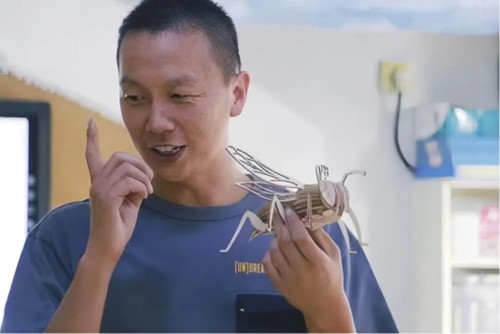
Li Yingli attended the meeting and delivered a speech.
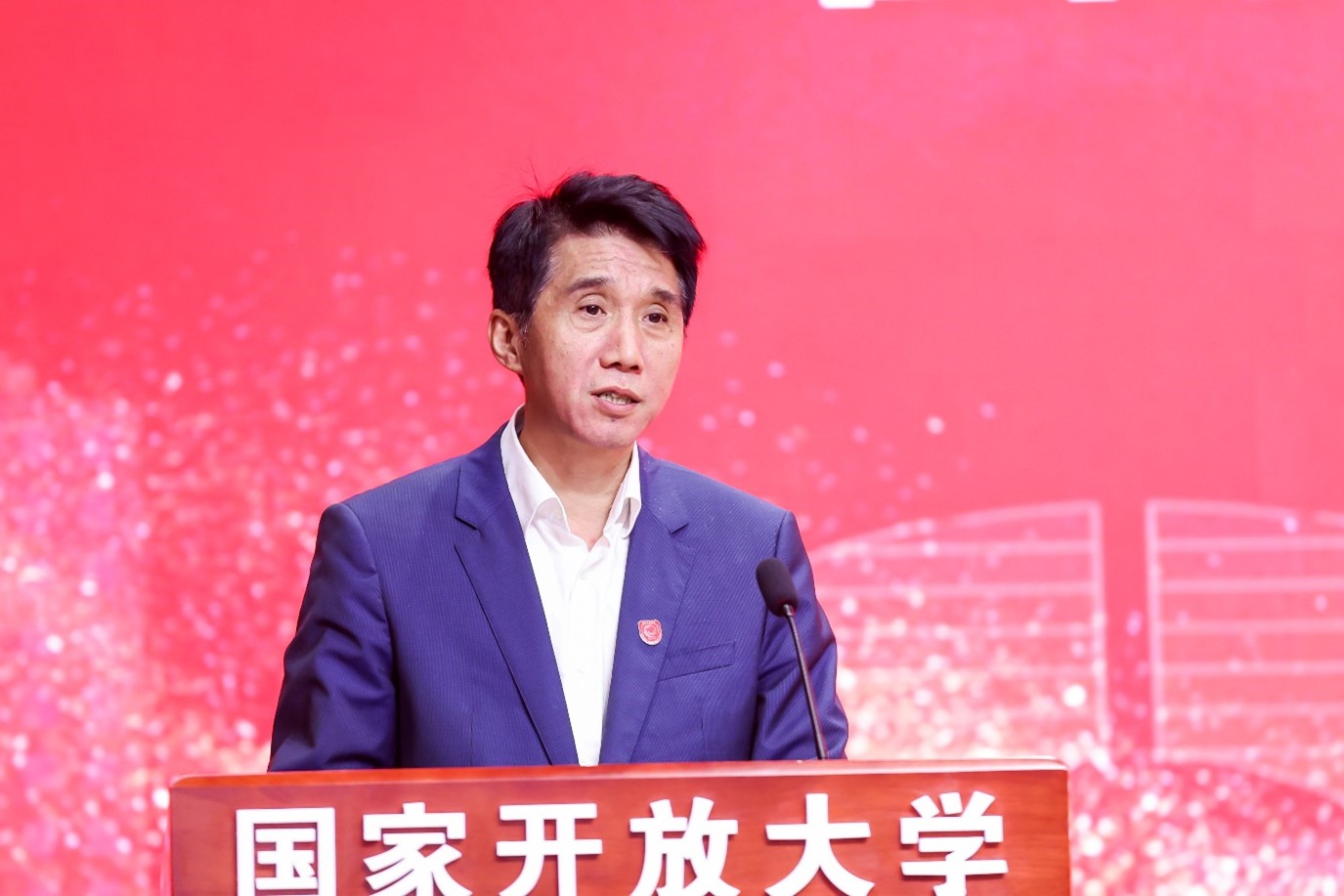
Wang Qiming attended the meeting and delivered a speech.
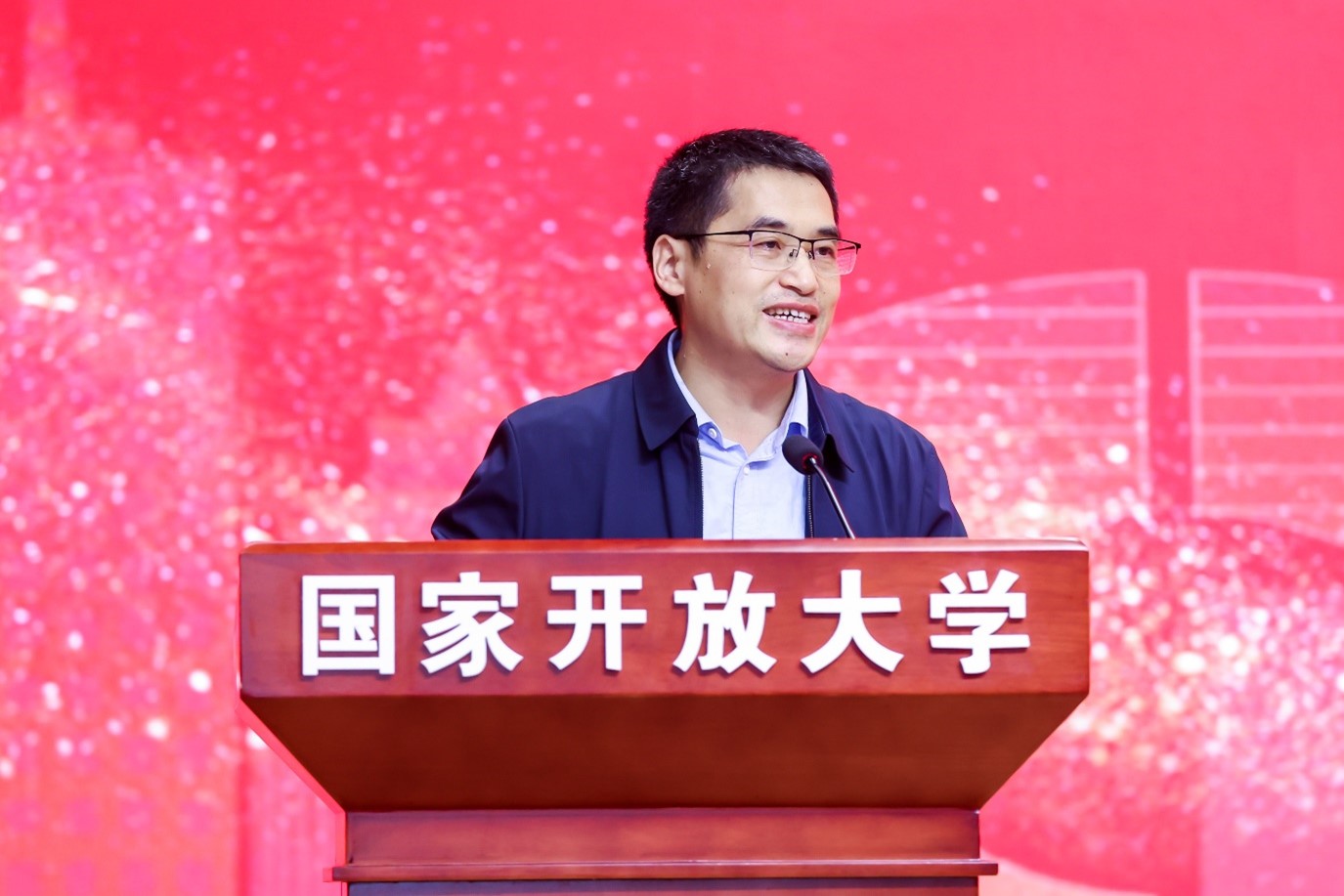
Liao Ming attended the meeting and delivered a speech.

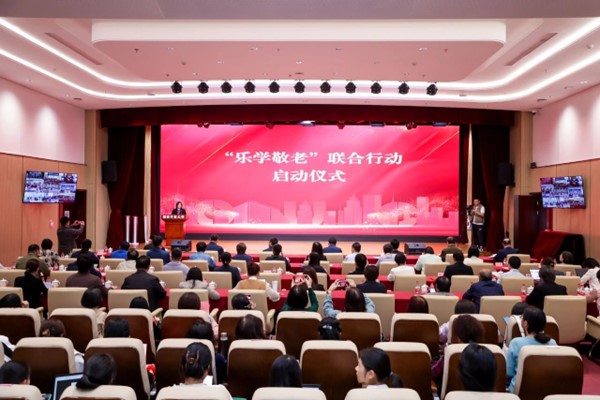
Li Yingli pointed out that this joint initiative aims to promote the collaboration between central and local governments, encouraging all regions to innovate in their approaches to enrich the content of the activities and highlight local characteristics, fostering a positive societal atmosphere of respect and care for the elderly. He emphasised three key aspects for organising the activities of “Happy Learning and Respecting the Elderly" in different areas. The first is to closely align with the actual needs of the elderly, offering diverse cultural, sports, and educational programmes in all forms to meet their varied demands and enhance their sense of happiness. The second is to fully mobilise the initiative of community organisations and elderly education institutions, creating platforms for learning and organising activities for the elderly. High-quality educational services for the elderly should be extended to older adults in communities and rural areas, enhancing their sense of fulfilment. The third is to fully utilise educational resources, encouraging teachers and students from all types of schools to engage in volunteer services, and allowing the elderly to enjoy a happy and fulfilling later life. He also made three proposals. First, “happy learning” should be treated as a promise of companionship, enabling the elderly to find their own joy through rich learning contents and flexible learning experiences. Second, “respecting the elderly” should be treated as a consistent responsibility, providing high-quality learning resources and support services for the elderly so that they can enjoy happiness through learning. Third, the “joint initiative” should be treated as a bridge, leveraging the power of the education system, gathering resources from society, riding the wave of digitalisation to organise a series of service activities, and making more contributions to the construction of an age-friendly society.
Wang Qiming highlighted the significant progress made in various areas since the establishment of the SUC. He noted that the OUC will use the joint initiative of “Happy Learning and Respecting the Elderly” as a key approach, organising activities for the Double Ninth Festival, various cultural and sports events, and "Proactive Health" learning programmes by embracing diversity and adapting to local conditions. The university aims to extend its services to the elderly in communities and rural areas by bringing to them learning activities focused on science popularisation, healthy living, information technology, and cultural entertainment. The digital empowerment is to be enhanced by launching the first batch of “TCM Master Lectures” on the National Education Platform for the Elderly, developing the "Little Leaf" intelligent learning companion, and creating elderly-friendly environments where learning resources are easy to read, listen to, and watch. The university is exploring multi-terminal, diverse, and ubiquitous elderly education models in an effort to meet the personalised and convenient high-quality learning needs of the elderly people. Moving forward, the SUC will work with relevant organisations for collaborative innovation and shared growth through discussion and collaboration, continuously improving its educational service capacity and quality. The goal is to strive to build the university into the “main channel” for elderly education, the “strong guide” for proactive health, and the“catalyst”for the silver economy, making due contributions to building a society and country of learning where lifelong learning is pursued by all.
Liao Ming emphasised that the development of elderly education is a crucial measure in actively responding to population aging and building a learning society. It is an essential requirement for meeting the diverse learning needs of the elderly, encouraging their social participation, and better utilising the human resources of older adults. He stated that the Ministry of Civil Affairs and the Office of the National Working Commission on Aging will actively cooperate with the MOE and other departments to continuously strengthen policy support, promote the expansion of elderly education resources, and coordinate efforts to improve the quality and efficiency of elderly education. This will help make new progress in ensuring the elderly’s access to learning, happiness, and accomplishment. He stressed that the Aging Work Department of the Ministry of Civil Affairs will enhance communication and collaboration with the MOE and other relevant departments, fully leveraging the positive role of the SUC. The goal is to promote the establishment of a coordinated development mechanism for elderly education, further clarify the objectives, main tasks, and support measures, shore up weaknesses, optimise public service provision for elderly education, and foster a major framework under which various parties get involved and multi-level authorities collaborate for the development of elderly education.
The meeting was held both online and offline, with nearly 400 participants. Those who attended in person included representatives from the China National Committee on Aging, and branch schools of the MOE and the Beijing Language and Culture University of the SUC, relevant officials from relevant departments of the OUC, all staff members of the headquarters of the SUC, and elderly learners from the Weigongcun Campus. Meanwhile, those who participated online were responsible personnel from relevant divisions and offices of the education departments or commissions of provinces, autonomous regions, and municipalities, as well as the Education Bureau of the Xinjiang Production and Construction Corps, and personnel in charge of the OUC branches.
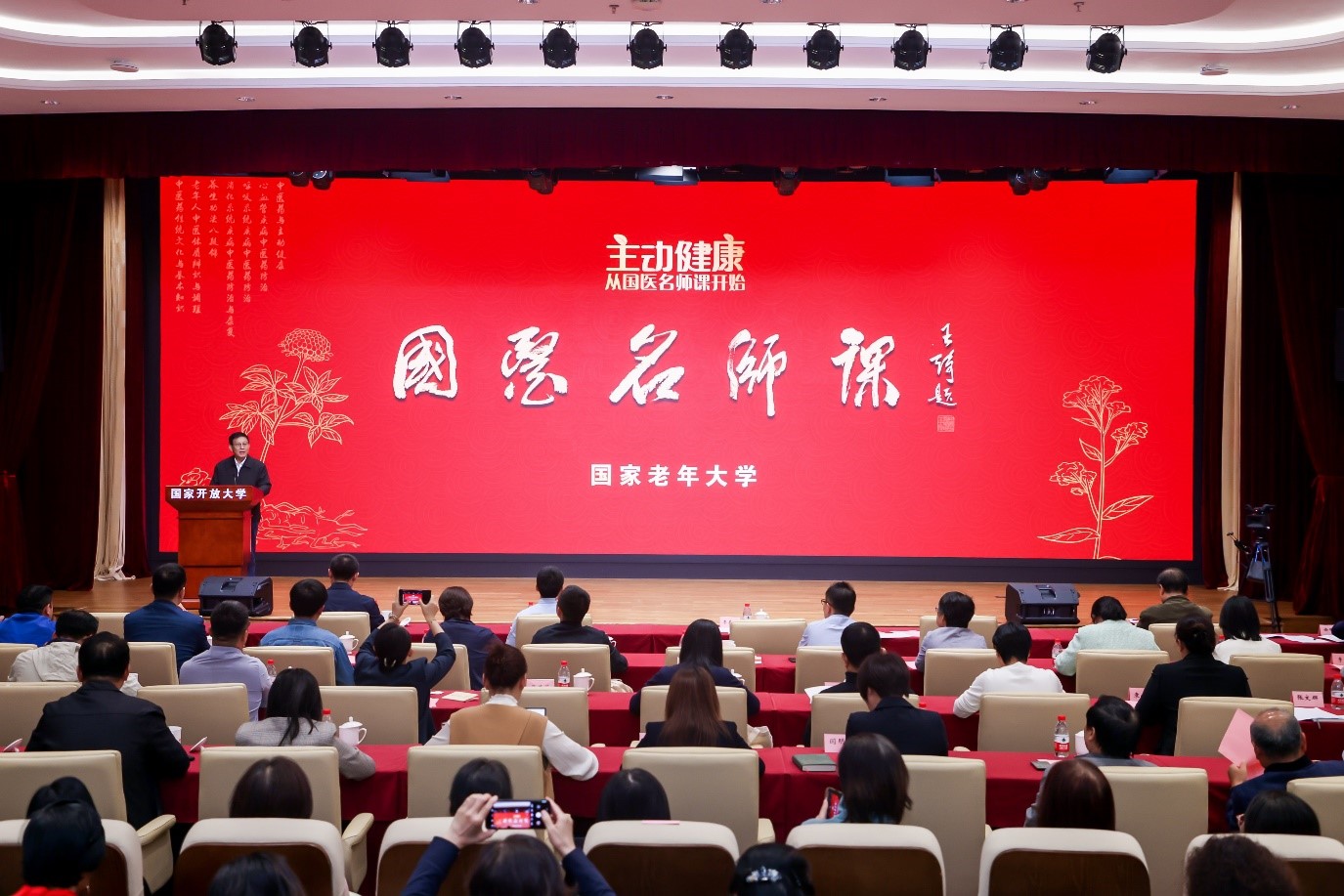
SUC’s first batch of "TCM Master Lectures" was released.
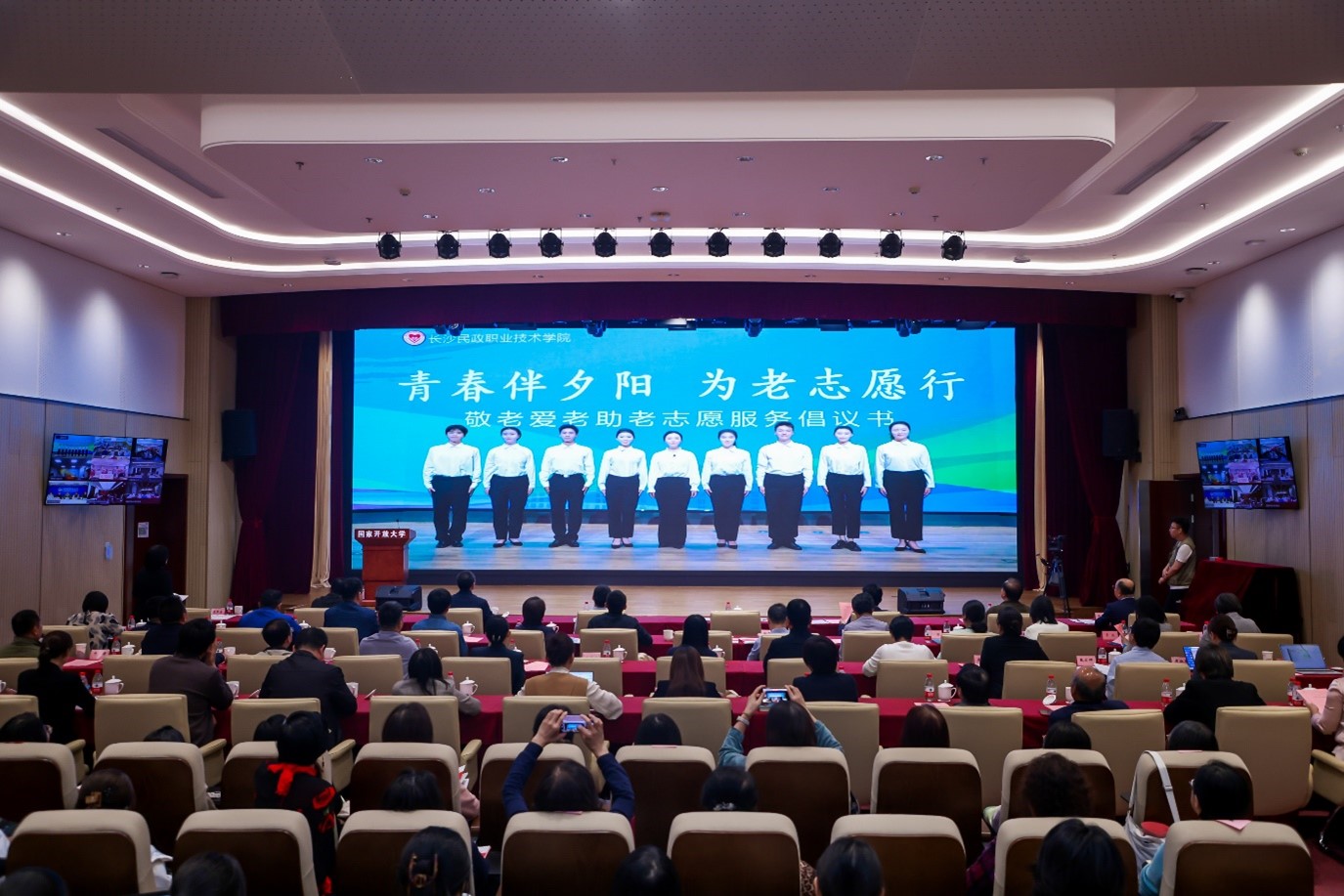
Student representatives read out a proposal for volunteer service.
At the meeting, the joint initiative of “Happy Learning and Respecting the Elderly" for the education system was launched, the first batch of "TCM Master Lectures" of the SUC was released, and the evaluation results of the 2024 Elderly University Teaching Achievements Exhibition were announced. Student representatives from Changsha Social Work College read out a proposal for volunteer service.
By Seniors University of China